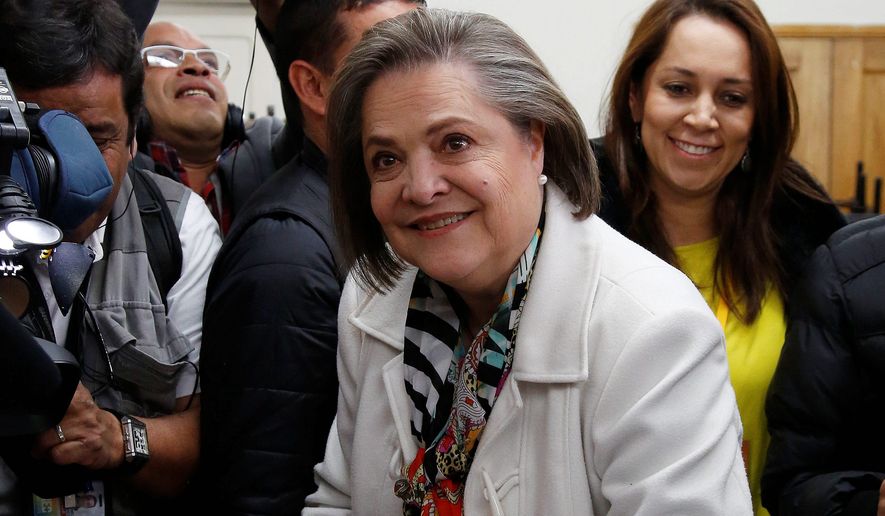A top Colombian official cautioned Wednesday that her country faces a tough road ahead despite last month’s heralded cease-fire agreement with leftist guerrillas that promised a possible end to the Western Hemisphere’s longest-running conflict.
Colombia’s government and the leftist FARC rebels took a huge step last month by agreeing to the cease-fire in Havana, but Labor Minister Clara Lopez — the highest-ranking Colombian official to visit Washington since the accord was signed — said there are still plenty of hurdles to clear in the coming days.
“We are on the way to peace, but it is not an easy way,” Ms. Lopez told a gathering at the Inter-American Dialogue, a Washington think tank. “Though it has been a difficulty to sign [the cease-fire agreement], carrying it to safe port is the challenge of the hour. There’s an opportunity for change, and the change has to address profound differences and cultural practices. We have to learn to relate without confrontation and by respecting our differences.”
The Revolutionary Armed Forces of Colombia, or FARC, the country’s largest guerrilla group, agreed to lay down its arms last month — an important step to ending the 52-year-old conflict, which has killed an estimated 220,000 people. Colombian President Juan Manuel Santos has said he expects a final peace deal by July 20, followed by a national referendum on whether to accept the agreement.
FARC military commander Timoleon Jimenez told the Prensa Rural news services that the rebels had stopped recruiting fighters and were abolishing the “FARC tax” that the group had long levied on residents within areas it controlled to finance its operations.
The government and the FARC said Tuesday in a joint statement that they had made fresh progress at peace talks in Havana on how to integrate the FARC into Colombia’s political sphere under a final peace deal, the Agence France-Presse news service reported.
Although the progress is encouraging, Ms. Lopez said, Bogota is still dealing with other guerrilla and paramilitary groups such as the National Liberation Army (ELN), which has not taken part in peace negotiations. Critics also worry that some FARC soldiers might turn to drug trafficking rather than lay down arms.
Reintegrating FARC fighters into Colombian society is likely to be difficult. Ms. Lopez said Colombia has historically struggled as a polarized nation and that social dialogue and political coalition are necessary to ease the transition to peace.
Politicians must “work in the direction of shared conceptions and shared ground at this stage in Colombia which involve deepening democracy, guaranteeing that the peace process will continue and a commitment to change,” she said.
After transitioning from leader of Colombia’s leftist political party to a member of Mr. Santos’ Cabinet in April, Ms. Lopez said, she exemplifies the cooperative mentality that Colombians will need in the coming years.
Colombian workers also will face challenges even if a peace deal is signed, Ms. Lopez said, because many still associate labor unions with guerrilla movements. Just an estimated 3 percent to 4 percent of Colombia’s workforce is unionized.
Ms. Lopez acknowledged that Colombia has not reached all of the goals in the Labor Action Plan — a U.S.-Colombia trade agreement approved in 2011 — but she said there has been movement in the right direction.
“We have made enormous improvements in having the business community respect labor unions, respect labor rights, carry out the collective negotiations,” Ms. Lopez said. “It’s a process, but we are going in the right direction and the peace process is the perfect complement.”
• Jessie Fox can be reached at jfox@washingtontimes.com.




Please read our comment policy before commenting.